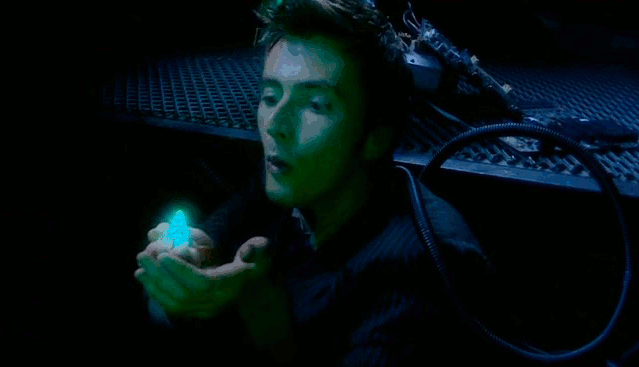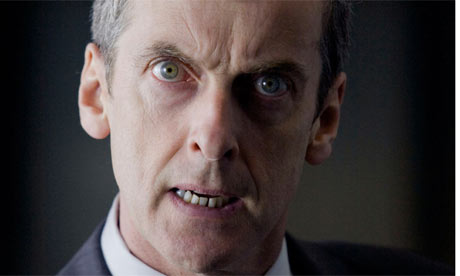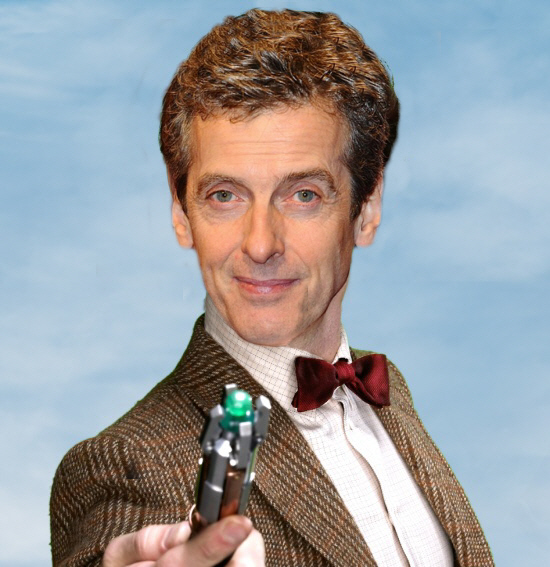CLASSIC DOCTOR WHO SEASON SEVEN VS.
NUWHO SEASON SEVEN: A COMPARISON
By happy coincidence I finished reviewing the seventh season of Classic Doctor Who at the same time the seventh season of the revived Doctor Who finished. In another curious twist, I also reviewed the first time both Classic and NuWho tackled parallel universes in Inferno and Rise of the Cybermen Parts 1 & 2 respectively. On another post I will tackle how the Classic and Revived Who worked with that premise, but for now I will turn my eyes to Season Seven.
Classic Who's Seventh Season, which was Third Doctor Jon Pertwee's debut season, consisted of four stories: Spearhead From Space, Doctor Who & The Silurians, The Ambassadors of Death, and Inferno. With the exception of Spearhead From Space at four episodes of twenty-five minutes (or around an hour and forty minutes), all other stories were seven episodes long (or almost three hours long).
Here are the scores for Classic Doctor Who Season Seven:
Spearhead From Space: 10/10
Doctor Who & The Silurians: 10/10
The Ambassadors of Death: 9/10
Inferno: 10/10
Average Score: 9.75
Now let us look at the Seventh Season of NuWho, which is Matt Smith's third and final season. Going by the official count, including the Christmas Special, we have fifteen episodes, ranging from forty-five to sixty minutes.
 Here are the scores for Revived Doctor Who Season Seven:
Here are the scores for Revived Doctor Who Season Seven:The Doctor, The Widow, and The Wardrobe: 4/10
Asylum of the Daleks: 3/10
Dinosaurs on A Spaceship: 4/10
A Town Called Mercy: 3/10
The Power of Three: 3/10
The Angels Take Manhattan: 3/10
The Snowmen: 2/10
The Bells of Saint John: 2/10
The Rings of Akhaten: 4/10
Cold War: 2/10
Hide: 3/10
Journey to the Centre of the TARDIS: 2/10
The Crimson Horror: 3/10
Nightmare in Silver: 1/10
The Name of the Doctor: 3/10
Average Score: 2.8
What could account for such wild discrepancy between these two Season/Series Sevens? There are some factors to take into consideration. First off, Classic Who was not dependent on having story arcs. We go from the Autons to the Silurians to the Ambassadors to the parallel universe with nothing apart from the characters themselves to tie any of the stories together. NuWho, conversely, revels in long story arcs which sometimes don't end up making sense or are hammered into the stories. We've seen long story arcs since Doctor Who was revived, from "Bad Wolf" in Season One to last year's "Death and Transfiguration of River Song" and this season's "The Impossible Girl" storyline. That's just how NuWho is working now. It now has to have season-long story arcs, rather than an independent series of adventures. I may not care for it but there it is.
Second, Classic Who had much longer to work with stories. If one attempted to work a Classic Who story to Revived Who's standard operating procedure, we would have three-episode stories. Though plausible, it would be difficult to put in everything in The Silurians into a one-episode story. It also might have made something like Cold War or Nightmare in Silver better if it had been allowed to go beyond the rapid pace of a fifty-odd minute show (though personally, I highly doubt something as abysmal as Nightmare in Silver could have been improved if it were given the running time of Lawrence of Arabia). As an addendum to that, we should remember that this is the first NuWho season that had no two-part stories, so we have to take that into consideration.
Still, there has to be a reason why no Revived Who Season Seven story managed to get even a 5 (which would make it average) while Classic Who Season Seven failed to make it a Perfect 10 only once (and that was by the thinnest of hairs).
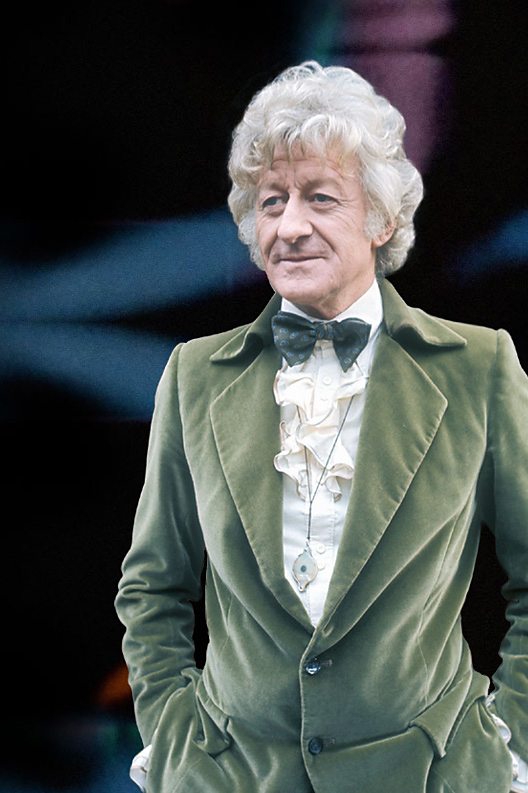 |
| He wore bow ties before bow ties were cool. |
I think the first reason Classic Who Series Seven succeeded while Revived Who Series Seven collapsed is due to the Doctors themselves. Classic Who had a lot riding on its seventh season. As the debut season for a new Doctor, the Third Doctor was starting fresh. Pertwee could shape the Doctor any way he wanted, and in fact the producers had hired him in part because pre-Who, he was known as a light comic actor (or as one DVD special feature put it, as "an eccentric cabaret performer"). Who producers hoped that Pertwee would work in the funny voices he was known for in the radio show The Navy Lark, and make the Third Doctor even lighter than Patrick Troughton's Second Doctor (the Cosmic Hobo, as he was nicknamed) had been.
Jon Pertwee, however, immediately rejected this idea. Instead, he shaped the Third Doctor as a man of action, one who faced dangers head-on and was above all else, serious. Many times Pertwee spoke of his costume, in particular of the cape with which he wanted to convey to children the image of the wings of a mother hen protecting her chicks. Pertwee was always conscious of the Doctor being a hero, not through use of force but through the use of the mind. He also said that one could never 'send it up' or spoof Doctor Who within an episode (MAYBE during rehearsals, but not on-camera). There could be humor in Doctor Who, but the Doctor himself must never be an object of ridicule. If one sees the Third Doctor and/or his stories, you always see that both were playing it straight; never dull, just with seriousness.
This is something that I can't say about Matt Smith's Eleventh Doctor. Any Doctor who 'lays down backing vocals' in a rap song for no discernible reason stands to make fun of the character, to not take things seriously, to turn him into a joke. Smith's Eleventh Doctor has been described to me as 'child-like', but the more I see of him the more I don't think of him as 'child-like'. I think of him more as 'imbecile', barely able to function in society, a danger to himself and others.
His costume was the subject of endless fascination...with him and him alone. "Bow ties are cool." "Fezzes are cool." Wandering around with a bow tie, a fez, and a mop...these aren't the actions of someone I would consider rational, let alone heroic.
Side note: on a couple of occasions the Third Doctor DID have to dress up in a silly costume (once as a cleaning lady I believe) but it was made perfectly clear that he did it for a perfectly logical reason (to disguise himself and get inside someplace undetected), and both the Third Doctor and Pertwee always hated when he had to dress up in these guises, feeling it made the Doctor look slightly ridiculous. One can only imagine what he would think of 'fezzes and Stetsons'...
 |
| What an ugly face, I mean, fez... |
You'd never catch Jon Pertwee/The Third Doctor 'talking Baby', going on about his fezzes, jumping up and down screaming about his 'Golden Ticket', or asking for same-sex marriage equality for horses...
Even worse, Eleven is quick to defer to others: he defers to River in the piloting of the TARDIS (a particularly sore point w/me, given that the 'whooshing' sound exists for all TARDISes despite the foolish 'joke' about 'the parking brake'), he lets Madame Vastra and Jenny take on a greater role in their stories to where, in The Crimson Horror, THEY rescued HIM rather than vice-versa.
Third would never have allowed his Companions this kind of leeway. In fact, many conflicts emerged between the Doctor and The Brigadier BECAUSE didn't see eye to eye. The respect was there, but their different worldviews were what gave the show drama. Conversely, it's Eleventh's willingness to let others take charge (to coin a phrase, let the Doctor 'leads from behind') that makes his stories rather daft.
The Third Doctor had a strong antiestablishment streak, a bit of a rebel, but one who cared about his Companions and friends. The Eleventh Doctor is mentally unstable, unaware of basics of human existence (such as how marriages work), but he cared about his Companions and friends. Some things never change...
 |
| She's smart. He's smarter. No flirting. |
In Classic Who's Season Seven, Companion Liz Shaw expressed no sexual yearnings for The Doctor, only respect for his abilities (a respect that was mutual). In NuWho's Season Seven, can we say the same about Clara?
When you are with the Third Doctor, you knew he was the smartest person in the room.
When you are with the Eleventh Doctor, you knew he was the dumbest person in the room.
Second, it is the stories themselves. The Third Doctor stories tackled very deep subjects, such as the fear of 'the other' in The Silurians and The Ambassadors of Death, and the dangers of preemptive strikes in the former. The stories they told were not just fantasy/adventure/science-fiction stories (although they were all that). They could be read as allegory, speaking of greater concerns that could not be addressed openly.
I look at Spearhead From Space. It's a fast-paced story that builds beautifully and is filmed with the brilliance of a feature film (since it was filmed by a film crew owing to a television strike, it does have that cinematic quality). However, if one sees Episode Four during the actual Auton invasion, we can see that although money was spared, what one can imagine can be quite terrifying in and of itself. When the Autons are killing bystanders in the streets, it can be read as almost prescient about random acts of violence or even terrorist acts. Though not graphic it is still a terrifying sequence.
Eleventh's stories, conversely, are hampered by their fixation on A.) the Companions being the primary focus, and B.) the story arcs from which there can be little to no deviation. If you look at every NuWho Series Seven story, there is nothing there that can be called 'deep' or allegorical.
I suppose if you want goofy adventure stories a la Dinosaurs on a Spaceship that's fine. There is nothing wrong with fun, goofy adventures. However, even within the stories themselves, there is little internal logic to them, let alone a logic that can hold the long story arcs NuWho goes for.
 |
| He's stupid. She's trigger-happy. Twenty year age gap in real life. A Love Story for the Ages... |
Even worse, we get more pleas to 'feel' for the Ice Warrior because he's sad he's all alone, and a remarkably lazy Deus Ex Machina (a group of hereto unknown Ice Warriors can sweep the lost Ice Warrior away at the last moment). And WHO exactly was taking pictures aboard a secret Soviet submarine which could find their way from the vast Russian archives to a website to allow those annoying kids to discover their nanny Clara was a time traveler?
TEARS defeated the Snowmen?
The Doctor managed to ignore River Song (or her hologram) until he managed to stop said hologram from slapping him?
The Doctor manages to ride a motorcycle up on the OUTSIDE of a building?
The Doctor keeps saying, "Doctor Who?" when the Dalek Oswin erases all their memories of him?
Adventure stories are one thing. Insulting the audience's intelligence (in particular those who know the show pre-Rose) is another.
I think that for me the reason Classic Who Series Seven is brilliant and Revived Who Series Seven is abysmal is due to a few factors. Classic Who took things seriously. Revived Who does not. Classic Who had an intelligent hero. Revived Who has a certifiably insane man.
Above all else, Classic Who Series Seven has well-written stories that are deep and (special effects aside) still hold up. NuWho Series Seven has a massive budget but allows its visual wizardry to drown out anything cohesive or logical. In short, Revived Who's Seventh Season is the Seinfeld of Doctor Who: they are episodes about nothing. This, above all, is why I think Classic Doctor Who Season Seven was a smashing success, and Revived Doctor Who Season Seven was a complete disaster.
 |
| River Song a Sex Symbol? Don't make me laugh... |
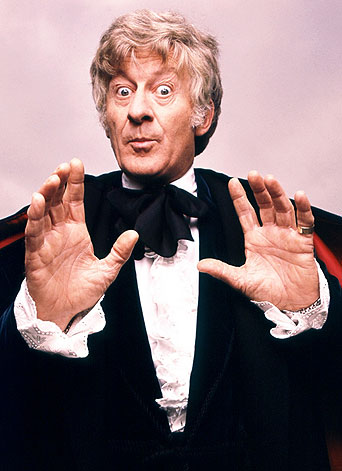



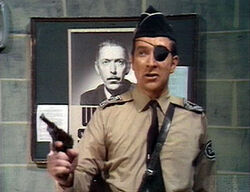

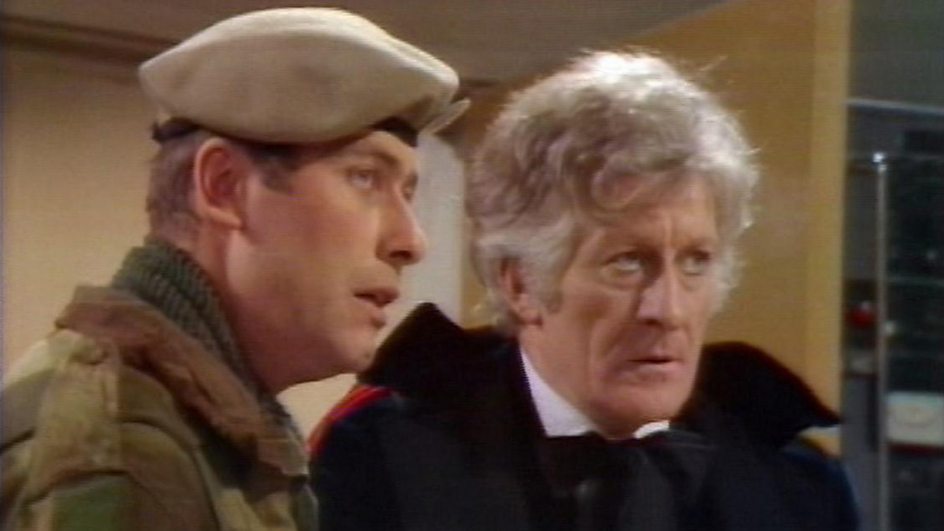
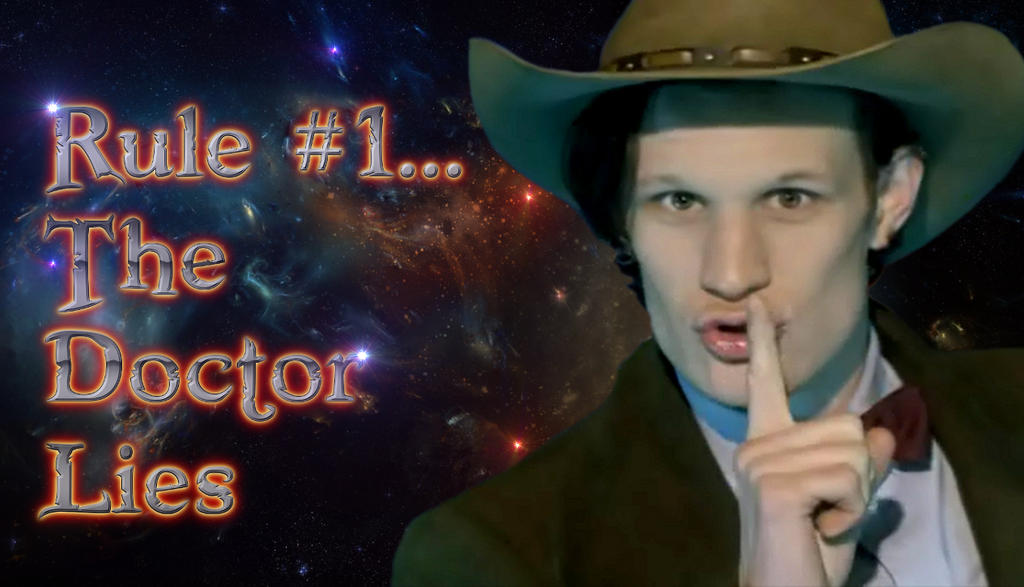

.jpg)


